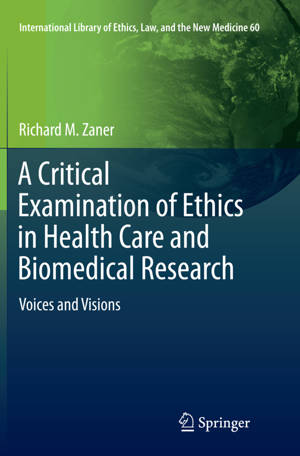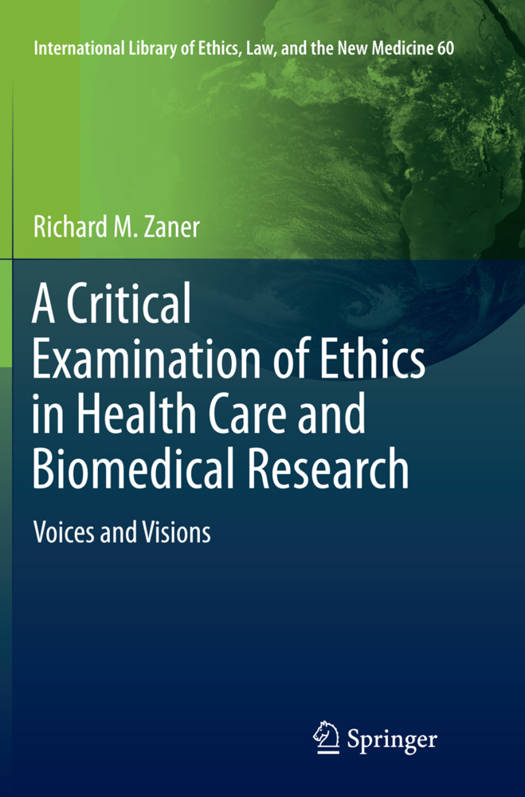
- Retrait gratuit dans votre magasin Club
- 7.000.000 titres dans notre catalogue
- Payer en toute sécurité
- Toujours un magasin près de chez vous
- Retrait gratuit dans votre magasin Club
- 7.000.0000 titres dans notre catalogue
- Payer en toute sécurité
- Toujours un magasin près de chez vous
A Critical Examination of Ethics in Health Care and Biomedical Research
Voices and Visions
Richard M ZanerDescription
This book is a critical examination of certain basic issues and themes crucial to understanding how ethics currently interfaces with health care and biomedical research. Beginning with an overview of the field, it proceeds through a delineation of such key notions as trust and uncertainty, dialogue involving talk and listening, the vulnerability of the patient against the asymmetric power of the health professional, along with professional and individual responsibility. It emphasizes several themes fundamental to ethics and health care: (1) the work of ethics requires strict focus on the specific situational understanding of each involved person. (2) Moral issues, at least those intrinsic to each clinical encounter, are presented solely within the contexts of their actual occurrence; therefore, ethics must not only be practical but empirical in its approach. (3) Each particular situation is in its own way imprecise and uncertain and the different types and dimensions of imprecisionand uncertainty are critical for everyone involved. (4) Finally, medicine and health care more broadly are governed by the effort to make sense of the healer's experiences with the patient, whose own experiences and interpretations are ingredient to what the healer seeks to understand and eventually treat. In addition to providing a way to develop ethical considerations in clinical life and research projects, the book proposes that narratives provide the finest way to state and grapple with these themes and issues, whether in classrooms or real-life situations. It concludes with a prospective analysis of newly emerging issues presented by and within the new genetics, which, together within a focus on the phenomenon of birth, leads to an clearer understanding of human life.
Spécifications
Parties prenantes
- Auteur(s) :
- Editeur:
Contenu
- Nombre de pages :
- 195
- Langue:
- Anglais
- Collection :
- Tome:
- n° 60
Caractéristiques
- EAN:
- 9783319382517
- Date de parution :
- 17-10-16
- Format:
- Livre broché
- Format numérique:
- Trade paperback (VS)
- Dimensions :
- 156 mm x 234 mm
- Poids :
- 299 g

Les avis
Nous publions uniquement les avis qui respectent les conditions requises. Consultez nos conditions pour les avis.






